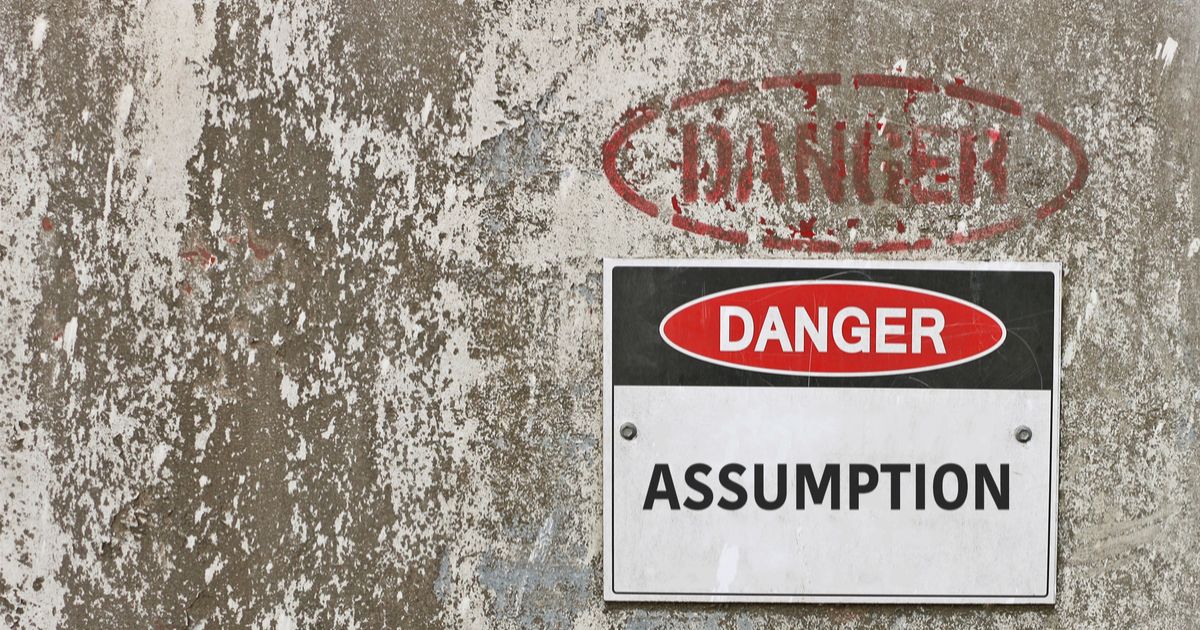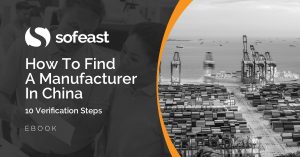Many buyers who are seeking to manufacture products in China tend to make assumptions about buying from Chinese suppliers that are seldom valid here, and it can be quite dangerous.
When I started spending a lot of time in Chinese factories, what I saw blew my mind. A foreign buyer simply can’t imagine what is sometimes going on behind the scenes. I’ll say that China is the land where everything is possible… from the worst to the best.
I wrote 21 common assumptions below, in categories, along with my comments.
Assumptions about the supplier’s company nature
1. “They make our product” means they totally control the manufacturing operations. Do they, really? Have you checked the factory’s business license, the owner’s name, and so on? A trading company often poses as a manufacturer, but they might just be customer number 47 for the real factory.
“We made extra sure it is a factory, to get the best price” means the buyer will be quoted the lowest price by a direct manufacturer. Not always the case, actually, especially for off-the-shelf products.
2. “They are moving their factory” means it will be the same people, same company, etc. and it is just a relocation. Really? Or is your supplier switching to another source? Will the transition really be smooth??
3. “They are a manufacturer, so there should be no legal restriction for them to make our products” means their business scope actually includes the manufacturing of your products. Not always true, since the scope is often narrow in China. Dan Harris touched on this last week in Overseas Product Manufacturing and the Importance of Knowing That Your Manufacturer is Actually Your Manufacturer:
If our client is looking to reveal secrets to a company in the hope of having that company eventually build airplane parts for it and our quick research reveals that company is not licensed to make anything but socks, we immediately know there is a problem.
Ten years ago, these quick searches revealed problems slightly more than ten percent of the time. These days, that number is probably hovering at around five percent, but I am getting the sense that with all the turmoil in global trade, that number is on the rise. Five percent is not a lot, unless it is your multi-million dollar deal at stake.
Assumptions about the supplier vetting process
4. “They already work with such and such big companies” means there is very little risk. That further assumes you are as interesting to them as those big companies, that they will treat you like those big companies, and that they really do work continuously in a good relationship with those big companies.
5. “We saw samples of brand XYZ in their showroom” means we know they are XYZ’s supplier and they must know that product and its associated processes, materials, and safety standards inside out. Except if they bought those products from amazon.com or from the Galeries Lafayette…
6. “We know they are legit so there’s no need to verify them” is also a classic. (It was suggested by Matt Slater from ChinaCheckup on Linkedin.) Some B2B directories might confirm a company really does exist… but does that mean they have been operating it legally? Does it mean they will behave ethically? Does it mean they really make the products you saw on their website?
7. “We found a great agent who is introducing us to good factories” means this is great — you have already figured China out! You know how it works and an insider is opening the right doors! Or maybe just matching you with her friends, cousins, or a supplier she doesn’t know and hasn’t properly qualified (very common). Oh, and watch out for hidden kickbacks.
8. “They are an Alibaba Gold Supplier” means we will be fine. Sorry to break the bad news to you, but an Alibaba Gold Supplier status doesn’t mean anything. We have conducted many QC inspections of batches made by ‘Gold Suppliers’ and many have been failed…
Assumptions about commercial negotiations
9. “They say ‘this is our company policy'” means they cannot accept this request. Until they are motivated enough by your project and/or they fear you might leave the table! China has a culture of haggling, and they expect you to play that game.
10. “They say ‘these payment terms are very standard'” means we need to go with that. Same comments as above. Keep in mind, everything is possible. For payment terms. For incoterms (or the choice not to follow them). And so on and so forth.
11. “They are a professional manufacturer and they say this is really the cost” means they have competent sourcing engineers, competent manufacturing people, they have done the research & calculations carefully for you, and they are not adding a high margin.
Assumptions about the development of your new product
12. “They signed our NDA” means they will respect our intellectual property. But are you sure your NDA is even enforceable in China? (Talk to a business lawyer who knows China.) Do they follow some basic precautions when it comes to respecting your IP (no personal email addresses, confidential information to be disclosed only a need-to-know basis, etc.)?
Read more about possible legal avenues for protection in this post: How To Create A Valid Manufacturing Contract In China To Protect Your IP
13. “They are making the tooling for us” means their own staff is fabricating the tooling internally, and it is ours, meaning we can get it back any time. Is that all written down and agreed on??
14. “They say our prototype is nice and they totally get it” means production can start soon. That’s what many inventors think before they realize they missed the Christmas season and production is running more than 6 months late.
Assumptions about the Chinese supplier’s quality systems
15. “They showed me the QC points in their process” means they will detect and stop all non-conforming material. This is a very loaded assumption. Here are some sub-assumptions:
- Operators, line leaders, and inspectors understand your quality standard
- Inspection will be done for you as promised (will you get their reports?)
- Inspection will be done on the right sampling (which might be 100%), and with the right acceptance limits
- Rework will be done well, and reworked units will be retested the same way
16. “They have ISO 9001 certification” means their quality must be good. (This is another suggestion coming from Matt.) Was their QMS well implemented? Are your products included in the scope of the certification? Are they specialized in making the same kind of products as yours, at the same quality standard? Have you looked at their KPIs, and does it bode well with what you’d call good quality?
17. “I explained that order quantities will be much higher if the quality is good and we get many 5-star ratings, as that’s how Amazon works; they get it” means they are motivated to do a good job. Unfortunately, that doesn’t always translate into a good job.
Assumptions about product compliance
18. “They already work with companies in our country” means they know all about compliance requirements. Except if their other customers generally manage this directly, while the manufacturer just follows orders…
19. “They have an in-house testing lab” means we can prove their product is compliant. (Also suggested by Matt.) Do they have all the testing equipment, including the (generally expensive) chemical analysis machines? And do they even know what standards apply, for selling in your country?
Assumptions about their ability to fix technical problems
20. “What you are asking for is not possible” means it really is not possible, since they are the materials & process experts. From my experience, this is often not true. Chinese suppliers often say something is impossible when they have no experience (and willingness to learn) an alternative approach. I have heard many gross generalizations such as ‘silicone can’t be painted’, ‘a galvanized metal can’t be coated’, and so on. A Google search can often demonstrate the opposite…
21. “There is 40% of scrap and a lot of rework” means it is really hard to make, and it is normal if they raise their pricing. Again, in most cases, what is an immature process in one factory is a very mature process (with defectives under 100 parts per million) in another factory. It is often the sign of poor engineering skills.
—
What do you think? Any other assumptions about buying from Chinese suppliers that come to your mind? Please share them, or ask any questions you may have, by leaving a comment.
Related reading: The 10 biggest misconceptions of importers about China, a good old article from 2012.
Are you trying to find a manufacturer in China who is well-suited to your needs and can also deliver on their promises?
Sofeast has developed 10 verification steps to help importers find the right manufacturing partner in China. They’re shared in this FREE eBook: “How To Find A Manufacturer In China: 10 Verification Steps.”
It covers:
- Background checks
- Manufacturing capabilities
- Quality system auditing
- Engineering resources
- Pricing, negotiation, & contracts
- …and much, much more
Just hit the button below to get your copy and put yourself in a great position to get better results from Chinese manufacturers who supply your products:


